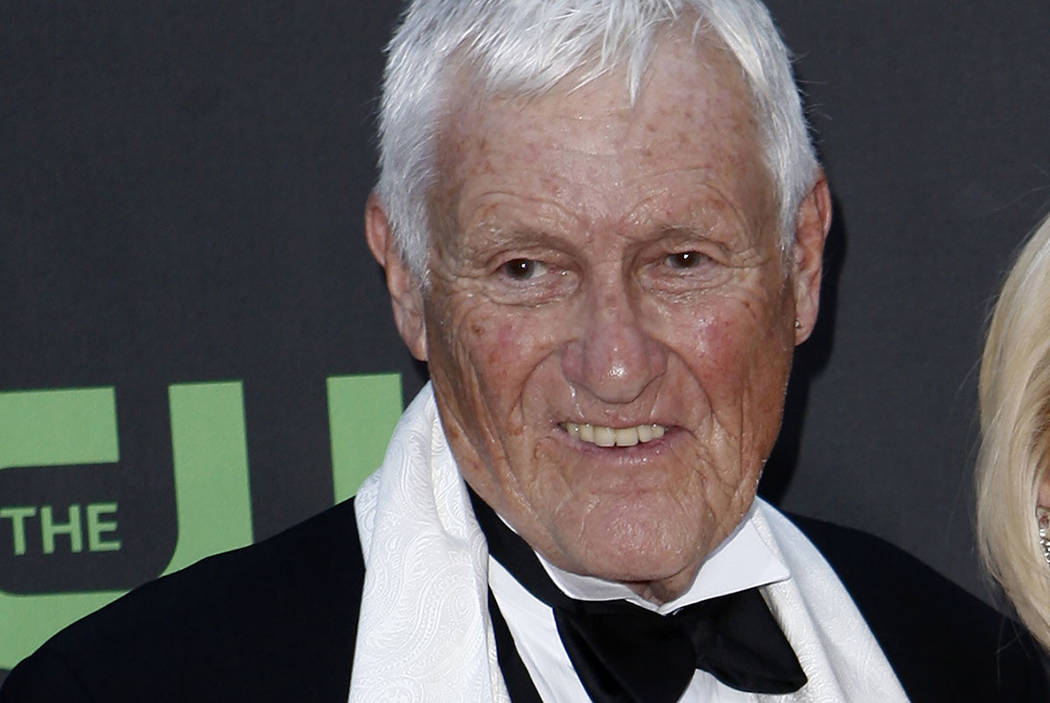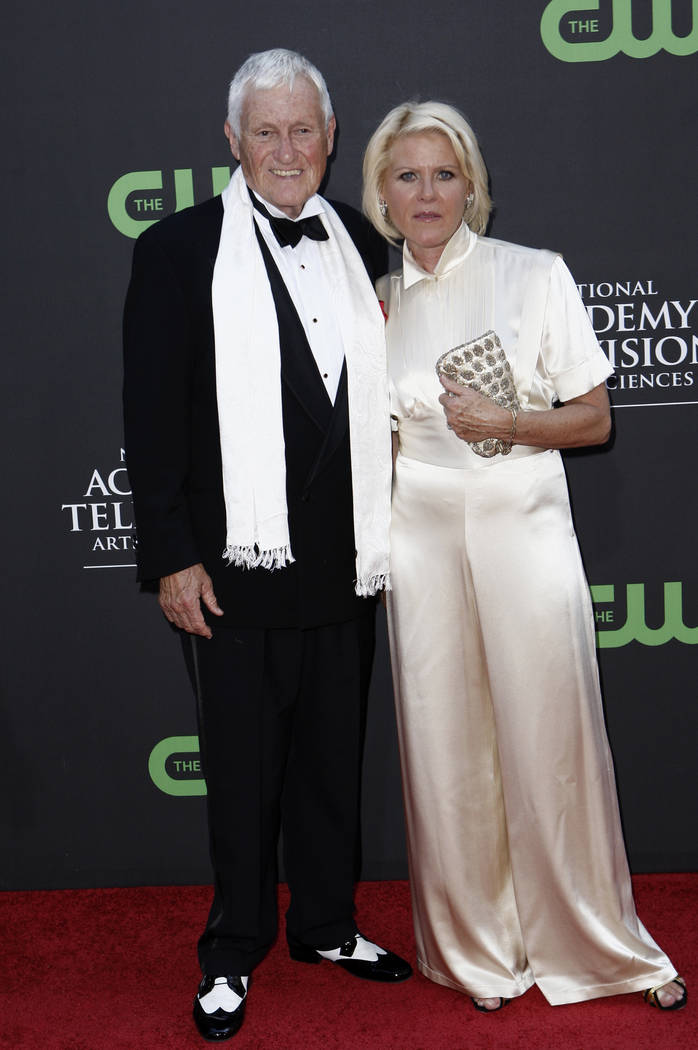Actor Orson Bean, 91, hit and killed by car in LA
LOS ANGELES — Orson Bean, the witty actor and comedian who enlivened the game show “To Tell the Truth” and played a crotchety merchant on “Dr. Quinn, Medicine Woman,” was hit and killed by a car in Los Angeles, authorities said. He was 91.
The Los Angeles County coroner’s office confirmed Bean’s Friday night death, saying it was being investigated as a “traffic-related” fatality. The coroner’s office provided the location where Bean was found, which matched reports from police.
A man was crossing the road outside of a crosswalk in the Venice neighborhood when he was clipped by a vehicle and fell, Los Angeles Police Department Officer Drake Madison said. A second driver then struck him in what police say was the fatal collision. Both drivers remained on the scene, neither was impaired and Bean’s death was being treated as an accident, Madison said.
Bean appeared in a number of films — notably, “Anatomy of a Murder” and “Being John Malkovich” — and starred in several top Broadway productions, receiving a Tony nod for the 1962 Comden-Green musical “Subways Are for Sleeping.” But fans remembered him most for his many TV appearances from the 1950s onward.
“Mr. Bean’s face comes wrapped with a sly grin, somewhat like the expression of a child when sneaking his hand into the cookie jar,” The New York Times noted in a review of his 1954 variety show, “The Blue Angel.” It said he showed “a quality of being likable even when his jokes fall flat.”
The early years
Born in Burlington, Vermont, in 1928 as Dallas Frederick Burrows, he never lost the Yankee accent that proved a perfect complement to the dry, laconic storytelling that established him as popular humorist. He had picked the stage name Orson Bean “because it sounded funny.”
His father, George, was a founding member of the American Civil Liberties Union and Bean recalled later that his “house was filled with causes.” But he left home at 16 after his mother died by suicide.
In a 1983 New York Times interview, he recalled his early career in small clubs where the show consisted of “me — master of ceremonies, comedian and magician — maybe a dog act, and a stripper.” It was a piano player in one such club, he said, who suggested replacing Dallas Burrows with some funny name like “Roger Duck” — or Orson Bean.
Bean’s quick wit and warm personality made him a favorite panelist for six years on “To Tell the Truth.” The game required the panelists to quiz three contestants to figure out which one was a real notable and which two were impostors. The dramatic outcome inspired a national catchphrase as the host turned to the three and said: “Will the real (notable’s name) please stand up?”
Bean’s style appealed to both Jack Paar and Johnny Carson, and he appeared on “The Tonight Show” more than 200 times.
On the blacklist
But his early career was hobbled for a time when he found himself on the Hollywood blacklist in the early years of the Cold War.
“Basically I was blacklisted because I had a cute communist girlfriend,” he explained in a 2001 interview. “I stopped working on TV for a year.”
The blacklist didn’t stop him in the theater. Bean starred on Broadway as a timid fan magazine writer in George Axelrod’s 1955 Hollywood spoof “Will Success Spoil Rock Hunter?” alongside Jayne Mansfield and Walter Matthau. He also starred on Broadway with Maureen O’Sullivan in “Never Too Late” and with Melina Mercouri in “Illya Darling,” based on her hit film “Never on Sunday.”
Bean took a break from his career for a time in the 1970s when he dropped out and moved to Australia, where he lived a hippie lifestyle. But he returned to the U.S. and — after a period as a self-described “house-husband” — resumed his career.
“I got sick of contemplating my navel and staring up at the sky and telling myself how wonderful it was not to be doing anything,” he explained in a 1983 interview with The New York Times.
Recent shows
In the 1990s, he played the shopkeeper Loren Bray on the long-running drama “Dr. Quinn, Medicine Woman.” He remained active on the screen in recent years with guest shots in such shows as “Desperate Housewives,” “How I Met Your Mother” and “Modern Family.”
Meanwhile, his politics turned more conservative. His daughter married leading right-wing commentator, Andrew Breitbart. Breitbart died in 2012 and Steve Bannon, later a top adviser to Donald Trump, took over Breitbart’s eponymous website, for which Bean had penned occasional columns.
Bean wrote a memoir called “Too Much Is Not Enough” and a book about a non-traditional therapy called “Me and the Orgone.”
He had already shown his interest in non-traditional thinking in 1964 when he bought a building in Manhattan and opened up a school based on the philosophy of Summerhill, the progressive British school founded by A.S. Neill.
“I said to myself, we have to start with the children. Why not start a school?” he told The New York Times.
That same year, he co-founded the Sons of the Desert, an organization dedicated to comedians Stan Laurel and Oliver Hardy, with chapters around the world.
More recently, income from “Dr. Quinn” and other voice and acting work allowed Bean to finance the Pacific Resident Theater Ensemble in Venice, where he appeared with his third wife, actress Alley Mills.
He had a daughter, Michele, from his first marriage to Jacqueline de Sibour, and sons Max and Ezekiel and daughter Susannah from his marriage to Carolyn Maxwell.























